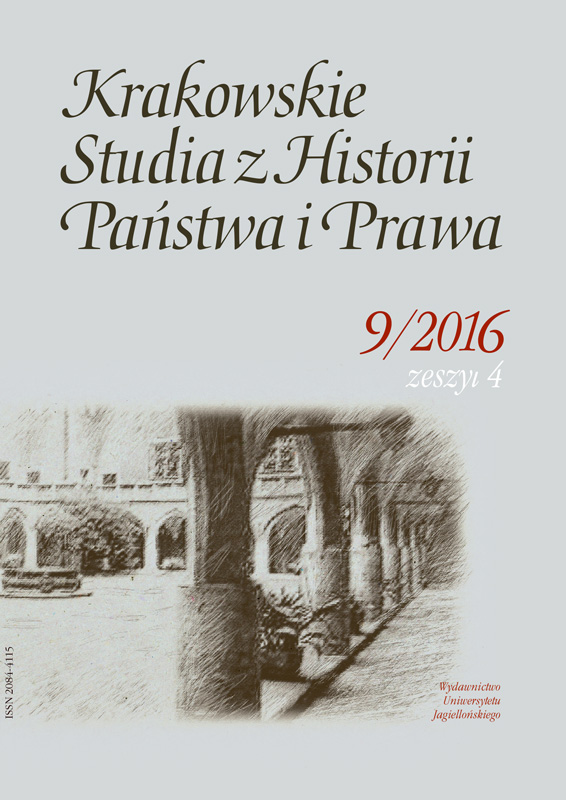Rząd Mariana Zyndrama-Kościałkowskiego 13 X 1935–15 V 1936 Pierwszy gabinet powołany w dobie obowiązywania Konstytucji kwietniowej
The Government of Marian Zyndram-Kościałkowski October 13, 1935 – May 15, 1936. The First Cabinet Appointed During the Period of Force of the April Constitution
Author(s): Jacek GoclonSubject(s): Political history, Recent History (1900 till today)
Published by: Wydawnictwo Uniwersytetu Jagiellońskiego
Summary/Abstract: The Marian Zyndram-Kościałkowski Government, was the first appointed cabinet after the entry into force of the April constitution of 1935. Deputy Prime Minister Eugeniusz Kwiatkowski played a decisive role in many of the government’s economic cases. The government concentrated on the economic recovery of the country. A certain economic recovery took place in the agricultural sector; a rise in the prices of plants grown for industrial purposes was registered, as well as of animals, and, from the spring of 1936, cereal crops. After a certain stagnation, the department of agriculture hastened the completion of agricultural reform. As a result of the rise in the incomes of agricultural producers and the increases in purchases of manufactured goods by the population of the villages, a growth in industrial manufacturing accelerated automatically. Apart from that the Council of Ministers decided to introduce a reform of the income tax system (including the extraordinary payroll tax), as a measure to increase the income of the state treasury. This brought additional earnings of 288 m PLN into the state treasury. The budget balance for 1935/1936 amounted to a deficit of 263 m PLN, but the budget for the following year was drawn up in such a way that the deficit was liquidated entirely (!) since the cuts in expenditures, and the limited reform of taxes made up for more than 100 m PLN. The government’s announcements of anticipated rapid improvements in the economic situation of the society in the autumn of 1935 turned out to be a big mistake. When the expected recovery failed to materialize, a wave of protests poured over the country in the spring of 1936. Admittedly, the government, through increased taxes and quite drastic cuts in state expenditures, succeeded in reducing the country’s budget deficit, but it simultaneously produced universal dissatisfaction in the society which had to incur serious costs due to such policies. As a result, in spite of the growth in industrial production and a reduction in unemployment, the population started withdrawing its deposits on a large scale, and exchanging them for gold and foreign currencies. In the spring of 1936 the government implemented a ban on the transport of mottos, as well as one on trade in foreign currencies and gold. It also put sharp restrictions on the exchangeability of Polish currency into gold and mottos, and suspended the transfer of foreign loans. All these measures were admittedly necessary, but they came too late to save the country from hemorrhaging foreign exchange. In commercial litigation cases, however, this was the first government to overcome a profound economic crisis.
Journal: Krakowskie Studia z Historii Państwa i Prawa
- Issue Year: 9/2016
- Issue No: 4
- Page Range: 547-566
- Page Count: 20
- Language: Polish

